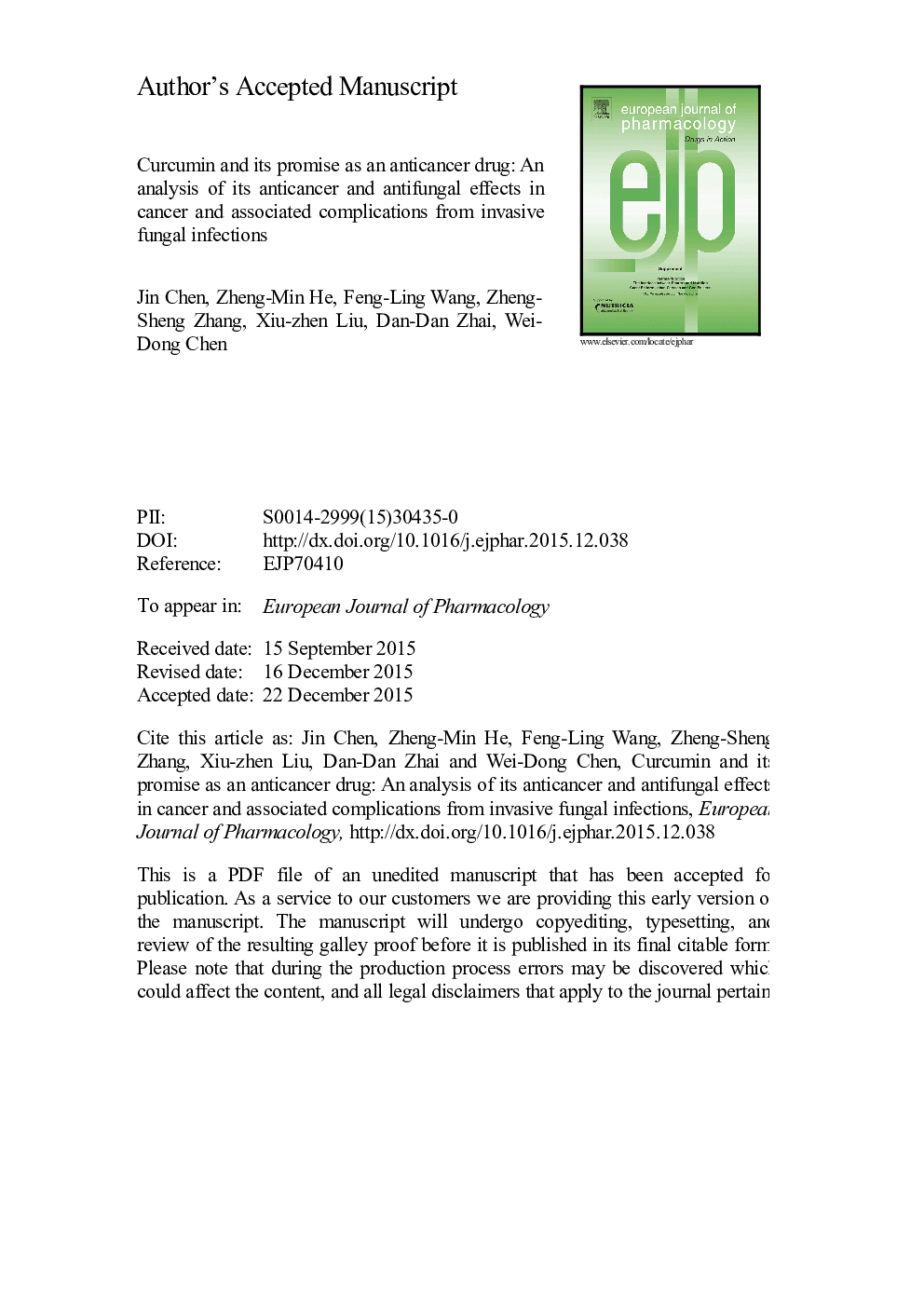| Article ID | Journal | Published Year | Pages | File Type |
|---|---|---|---|---|
| 5826794 | European Journal of Pharmacology | 2016 | 44 Pages |
Abstract
Invasive fungal infections (IFI) are important complications of cancer, and they have become a major cause of morbidity and mortality in cancer patients. Effective anti-infection therapy is necessary to inhibit significant deterioration from these infections. However, they are difficult to treat, and increasing antifungal drug resistance often leads to a relapse. Curcumin, a natural component that is isolated from the rhizome of Curcuma longa plants, has attracted great interest among many scientists studying solid cancers over the last half century. Interestingly, curcumin provides an ideal alternative to current therapies because of its relatively safe profile, even at high doses. To date, curcumin's potent antifungal activity against different strains of Candida, Cryptococcus, Aspergillus, Trichosporon and Paracoccidioides have been reported, indicating that curcumin anticancer drugs may also possess an antifungal role, helping cancer patients to resist IFI complications. The aim of this review is to discuss curcumin's dual pharmacological activities regarding its applications as a natural anticancer and antifungal agent. These dual pharmacological activities are expected to lead to clinical trials and to improve infection survival among cancer patients.
Keywords
IAPendothelial nitric oxide synthasesGADDb-FGFTIMP1TIMP4↓↑PARPEGFReNOSMMP-2MMP-9CDKMMPEGFJnkCOX-2c-Jun N-terminal kinaseIncreaseCyclooxygenase-2Endothelial growth factorbasic fibroblast growth factormatrix metalloproteinaseMatrix metalloproteinase-9Matrix metalloproteinase-2Tissue inhibitor of metalloproteinase 1inhibitor of apoptosis proteindecreaseNitric oxidepoly (ADP-ribose) polymerasecyclin-dependent kinasesEpidermal growth factor receptor
Related Topics
Life Sciences
Neuroscience
Cellular and Molecular Neuroscience
Authors
Jin Chen, Zheng-Min He, Feng-Ling Wang, Zheng-Sheng Zhang, Xiu-zhen Liu, Dan-Dan Zhai, Wei-Dong Chen,
